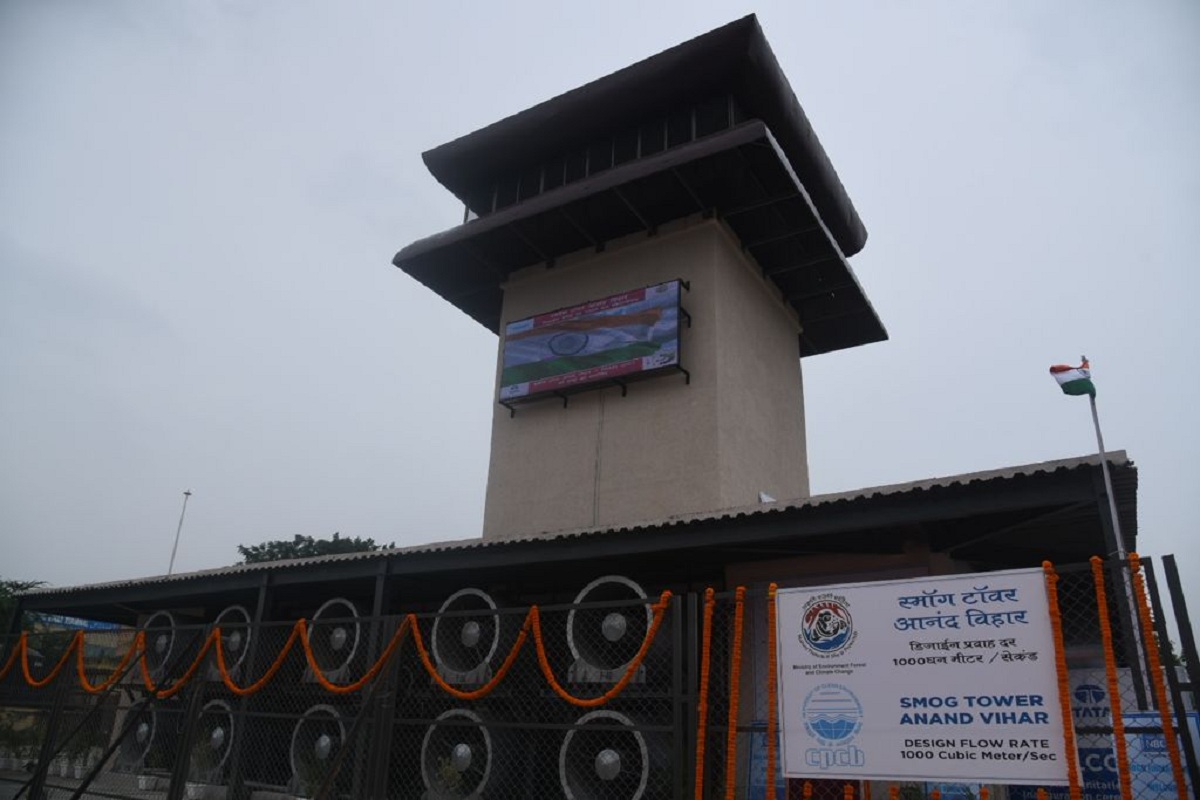Union Minister for Environment, Forest and Climate Change Bhupender Yadav on Tuesday virtually inaugurated the first functional smog tower of India at Anand Vihar in national capital Delhi.
The smog tower with a height of over 20 meters is of downdraft type with pollution or particulate matter entering from the top of the tower and clean air coming out from the bottom. The purpose of the tower is to reduce air pollution namely particulate matter at the local level.
Advertisement
The filtration system being used in the smog tower has been designed by University of Minnesota with a likely efficiency of 90 per cent. The tower has been constructed by Tata Projects Limited with NBCC (India) Ltd. as the project management consultant. Forty fans have been installed to provide a design airflow rate of 1000 m3/sec.
Speaking on the occasion, Union Minister Bhupender Singh said, “Under the leadership of the Prime Minister Narendra Modi the government is now actively linking all policy approaches to give paramount importance to conserving public goods like water, air and Earth.”
The minister said the Centre had initiated several measures aimed at improving the air quality in the entire country in accordance with the Prime Minister’s goal of ensuring ‘holistic improvement in air quality’ in over 100 cities of the country. He further claimed that as a result of the government’s efforts “86 cities showed better air quality in 2019 in comparison to 2018, which increased to 104 cities in 2020.”
“PRANA” – a portal for Regulation of Air-pollution in Non-Attainment cities under the National Clean Air Programme (NCAP) was also launched on the occasion.
The Ministry of Environment, Forest and Climate Change and Central Pollution Control Board (CPCB) are engaged in implementing the National Clean Air Programme (NCAP) in the country from 2019. “The aim is to achieve 20 to 30 per cent reduction in Particulate Matter (PM10 and PM2.5) concentrations by 2024 across the country,” according to a ministry note.









